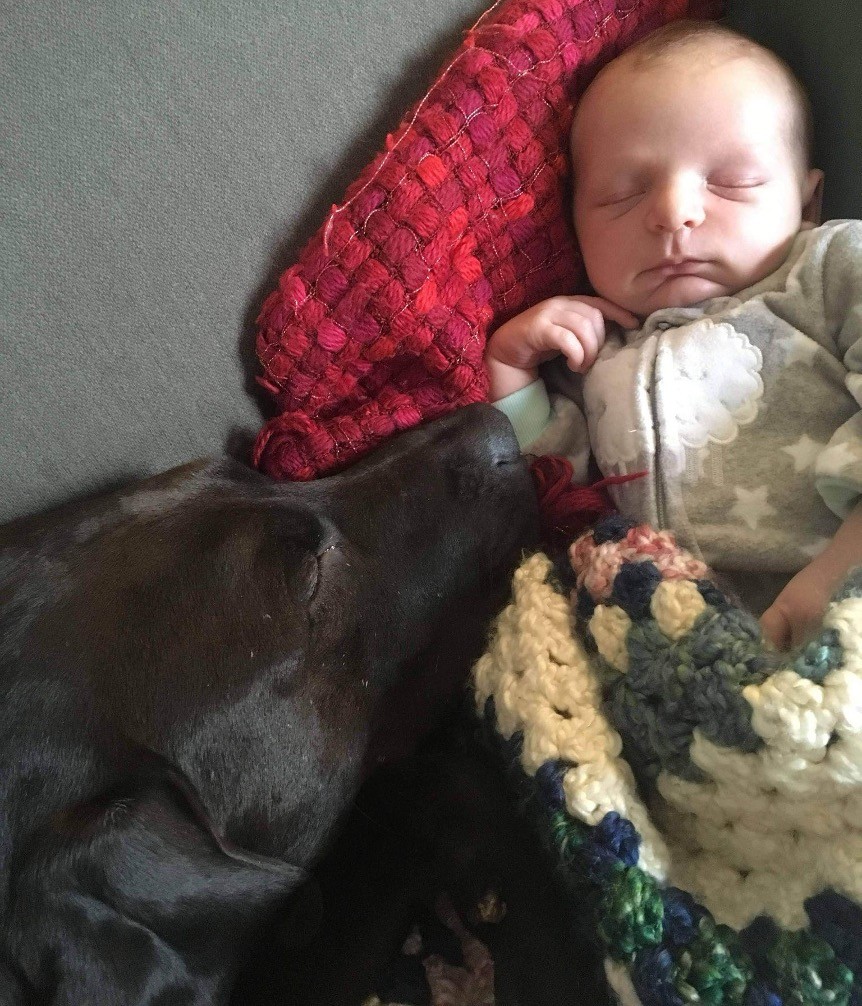This article wasn’t turned in on time. It wasn’t even close. I’ve spent the last month and a half thinking about the DadZone, asking myself questions like: What should I write? Shouldn’t you probably start writing soon? And the all-important: Will my editor still like me if my piece is several days late? [1] I greatly struggle with things like deadlines, in large part because I have ADHD.
As an adult with ADHD, my brain is slightly different than a neurotypical brain. I don’t procrastinate because I’m lazy or I’ve forgotten about a deadline. I tend to not finish things until the last minute because the part of my brain that controls what I pay attention to is broken. I like to imagine it like a control panel, where there’s a knob that dictates how much attention you spend on a thing. In most people’s brains, that knob has number markings from zero to ten.[2] The knob makes satisfying clicks as you turn it up or down. When you reach zero or ten, it stops and doesn’t let you go any further in that direction. And next to the knob is a clock that keeps track of how long you’ve been at the current setting.
In my brain, there have never been any numbers on the knob. Instead of satisfying clicks, my control dial just spins freely, jumping from zero straight to ten, straight to three, and straight to zero again. And someone took my clock to use for something else and never put it back. The part of my brain that knows it has a deadline is disconnected from the part of my brain that could tell me to start writing. The part of my brain that hyperfocuses on a video game like Hollow Knight for eight straight hours doesn’t talk to the part of my brain that tells me to go to sleep (but, I do get really good at the game).
Being a parent with ADHD was actually a boon when the kids were babies. Babies require all of your attention all of the time, so there was zero question about where I should be focusing. If I was awake, I was paying attention to the baby or doing chores so that my wife Kat could pay attention to the baby. When we were in baby mode as a family, the extreme limitations on decision-making turned my ability to hyperfocus into a superpower. I could pace with a baby back and forth across the house for hours in the hopes that they’d fall asleep, and while physically exhausting, my brain’s disconnection from time meant it was like no time had passed at all.
But kids don’t stay babies. Eventually they go to high school and have piles of work they need help managing. Seven classes. Odd days. Even days. Semester-long projects. Asynchronous instruction. Some assignments are in Google Classroom; others are in Schoology. The grades are official when they are in PowerSchool, but those aren’t updated immediately so look in this other system if you want to see if your kid turned in the thing. Oh, and because the magnet school is separate from the city school system, your other kid has their grades in Aspen, but again, not right away, so you’ll need to stay on top of Google Classroom.
If I couldn’t manage my schoolwork when it was just me and the assignments were only written down in chalk, how am I supposed to help my kids manage the complexities of modern studenthood? If I’m still working on developing these skills as a 42-year-old adult, how am I supposed to help my kids learn them? My advice on a project that’s worth 25 percent of your semester grade can’t be, “Try to get it done the night before and if that fails, do really well on the tests so you average out to a C.” I don’t want to teach my kids to let their anxiety build and build and use that as dopamine fuel that allows them to kick their brain into gear.
The good news is I’m not alone in this effort. I have a partner in Kat, who is much better at getting things done than I am. I have two children who fortunately aren’t exactly like me. They have different strengths and weaknesses than I do. My daughter is more organized at twelve than I was in my thirties. My 15-year-old can turn a pile of mess into amazing art with a focus and intensity I’ve never reached. They figure so much out on their own. And while I might not be the best at keeping track of what assignments are due when, I can offer the empathy of my experiences when my children show traits similar to mine. I can be more educated on different types of brains and be an advocate for my kids, getting them accommodations should they need them.
And while it’s a struggle, I have managed to be a functioning grown-up, at least most of the time. Out of necessity, I’ve had to develop organizational systems and practices to supplement my brain’s inability to do it on its own. I can be there for my kids and let them know they are not alone when they make similar mistakes to ones I made. I can talk openly about my current challenges as I’m experiencing them, so the kids know it’s okay to be imperfect. I can let my kids know that even if they get imperfect grades, don’t turn in homework, or think differently than I do, they will be loved unconditionally with all my being. And I can be honest about my ADHD in a parenting essay, even if it is two weeks late.
1 She will. She’s very nice!
2 Or for you Spinal Tap fans, “zero to eleven.”





